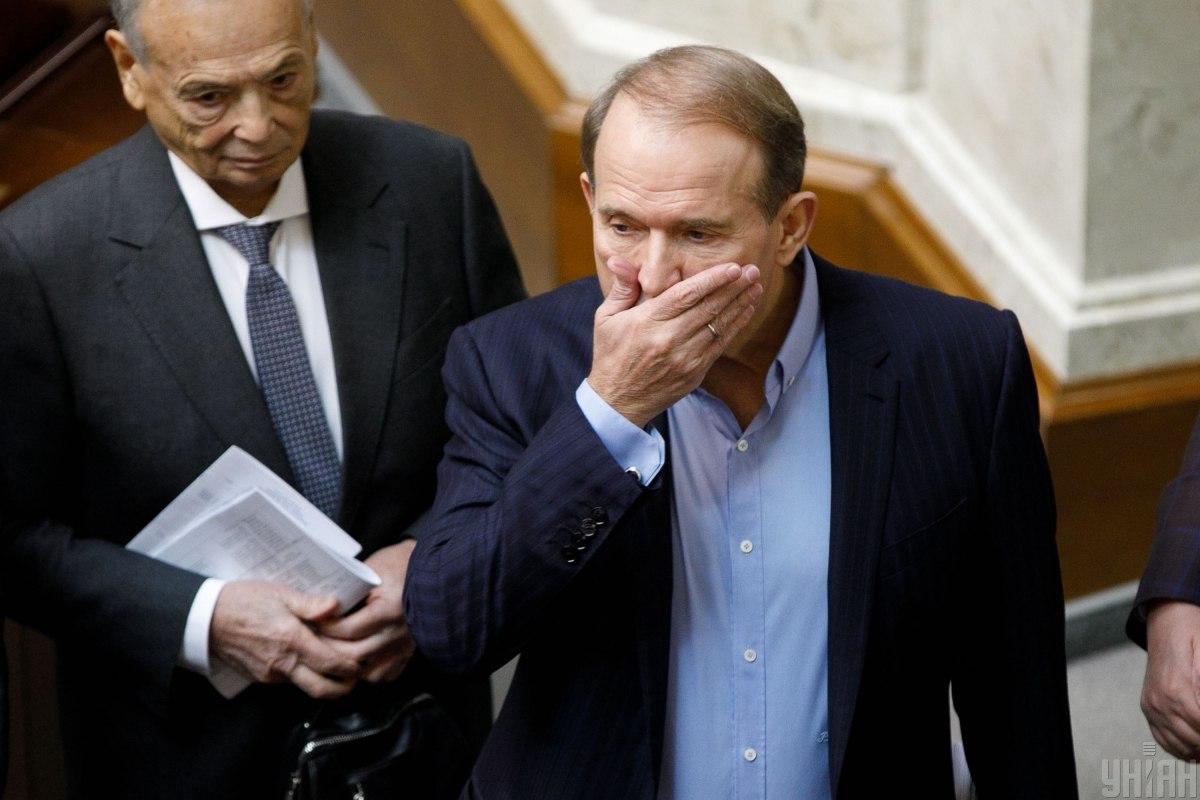
The National Security and Defense Council at its meeting on Friday, February 19, imposed a package of sanctions on an MP with the pro-Russian OPZzh party Viktor Medvedchuk, a major political ally in Ukraine of Russian President Vladimir Putin.
His wife Oksana Marchenko, as well as on a number of affiliated persons, have also been sanctioned, that's according to Interior Minister Arsen Avakov.
Read also"Freudian slip" as Putin comments on Ukraine's move to ban pro-Russian TV channels"A meeting of the National Security and Defense Council has just ended, where a decision was made on the relevant sanctions against Mr Medvedchuk, [his wife] Oksana Marchenko, and several other persons affiliated with Medvedchuk's holding," Avakov said.
Speaking at a briefing, NSDC Secretary Oleksiy Danilov said a total of 19 entities and eight individuals have been sanctioned in the latest move, according to an UNIAN correspondent.
All property and assets owned by Mr Medvedchuk and his wife are subject to sanctions, Danilov elaborated to a clarifying question.
The list also includes Russian nationals Vitaly Donchenko, Alexander Maslyuk, and Mikhail Popov, and Konstantin Vatskovsky, as well as two Ukrainian citizens Natalia Lavrenik and Serhiy Lisohor.
Five aircraft and companies involved in operating them have also been sanctioned for flying to Russia despite the existing ban, Danilov said, according to the BBC.
Security officials accuse Medvedchuk of "financing terrorism", as per Article 258 Part 5 of the Criminal Code, Romanenko added.
Ban on pro-Russian TV channels
President Volodymyr Zelensky on February 2 enacted a package of sanctions put forward by the National Security and Defense Council, effectively blocking a number of media assets, including 112 Ukraine, ZIK, and NewsOne TV channels that had been multiple times accused of preaching pro-Russian rhetoric, formally owned by Taras Kozak – an MP and ally of Vladimir Putin's crony Viktor Medvedchuk.
Commenting on own move, President Zelensky said he strongly supports freedom of speech, but not "propaganda financed by the aggressor country."
SBU security service chief Ivan Bakanov said, "There is a big difference between freedom of speech and outright anti-Ukrainian rhetoric. Freedom of speech ends where signs appear of encroachment on territorial integrity and sovereignty of Ukraine."
U.S. diplomats in Ukraine have supported the move and called for joint efforts "to prevent disinformation from being deployed as a weapon in an information war against sovereign states."
Meanwhile, the European Union's External Service said it was "assessing the implications" of the ban on TV channels.
Following the ban on pro-Russian TV channels, NSDC Secretary Oleksiy Danilov said the authorities could introduce restrictive measures against more media assets if evidence was found proving they worked to the detriment of Ukraine's national security, playing in the hands of the adversary.

